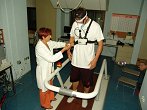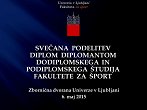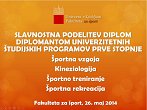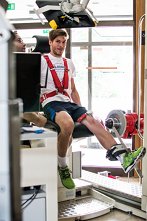The impact of medicamentous or lifestyle intervention weight loss on endometrial gene expression and protein profile in infertile women with polycystic ovaries syndrome and obesitas
- Code J3-8206
- Date 01.05.2017 - 30.04.2020
- Funds provider Public Research Agency of the Republic of Slovenia
- Organisation University Medical centre Ljubljana (Head: Dr. Vrtačnik-Bokal Eda)
- Holder Prof. Ph.D. Mateja Videmšek
AbstractPolycystic ovaries syndrome (PCOS) is the most common endocrinologic disease in reproductive period. It is associated with several reproductive and metabolic disorders. Obesity frequently accompanies PCOS. Obese women with PCOS have lower spontaneous and IVF pregnancy rates, higher miscarriage rates, lower live-born rates and higher complication rates during pregnancy. Causes of infertility in PCOS include anovulation, decreased oocyte quality and reduced endometrial receptivity. It is well known that even a small weight reduction in obese PCOS patients improves endocrine profile, menstrual cycle regularity and fertility thus, weight reduction isconsidered as a standard treatment of PCOS. Embryo implantation represents a crucial step of the reproductive process. Quality embryo, appropriate endometrial receptivity and synchronous dialog between them are needed during the window of implantation (WOI) for successful implantation. Endometrial gene expression of women with high body mass index (BMI) during the WOI differs from gene expression of women with normal BMI, especially if obesity is combined with infertility. Genes related to embryo implantation have been shown to be differentially expressed in these women. It is also known that expression of androgen and estrogen receptor genes in endometrium of overweight women with PCOS differs before and after weight reduction. The purpose of the proposed project is to analyse transcriptome and proteome of endometrial cavity fluid during the WOI and determine whether there are biomarkers of successful embryo implantation in in vitro fertilization (IVF) procedures. Furthermore, we want to determine how the transcriptome and proteome of endometrial cavity fluid of obese (BMI ) 30 kg/m2) women with PCOS during the WOI change after weight loss by using medication or a combination of diet and exercise. We will compare these results with transcriptome and proteome of endometrial cavity fluid during the WOI of women with normal BMI (18.5 – 24.9 kg/m2), who will get pregnant in IVF procedures. With these analyses we want to determine which one of the weight reduction programmes leads towards more phyisiological changes of endometrium on molecular level.



































.png)